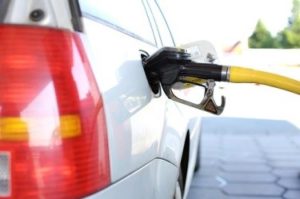 If your vehicle has you feeling like you have another teenager in the house, causing you to make frequent trips to the gas station to “feed” it, it’s time to take a closer look. While it’s true that there are some causes of poor gas mileage that you can’t control, it’s more likely that there are at least one or two culprits that you can change.
If your vehicle has you feeling like you have another teenager in the house, causing you to make frequent trips to the gas station to “feed” it, it’s time to take a closer look. While it’s true that there are some causes of poor gas mileage that you can’t control, it’s more likely that there are at least one or two culprits that you can change.
Common reasons for poor fuel efficiency
Some older vehicles just weren’t made according to today’s standards in terms of fuel economy, and you may not be able to do much to improve their gas mileage. If your vehicle is more modern, however, you may be able to change one or more of the following culprits that have you frequently visiting the gas pump:
- Poor driving habits
Your need for speed could be costing you more money – driving the appropriate speed with moderate acceleration and breaking can cut down on fuel usage.
- Idling time
Obviously, there are times when it makes sense to leave your car running, even when you’re not moving. Other times, however, idling for too long can increase fuel consumption and result in poor fuel economy overall.
- Tire condition
It’s not necessary to constantly get new tires, but they should be in excellent condition – this includes the proper air pressure and tread.
- Tire alignment
Proper alignment is necessary for the safe operation of your vehicle, but it also contributes to gas mileage.
- Motor oil
This includes both the type and the quantity. Using the wrong oil grade, or not having enough oil, can cause an engine to use more fuel.
- Faulty oxygen sensor
This important part measures the amount of exhaust vapors leaving the combustion chamber, which then helps the electronic control unit to decide how much gas the engine needs. When the sensor is faulty or dirty, it can provide an inaccurate measurement, leading to increased fuel consumption.
- Fuel system malfunctioning
Not surprisingly, the fuel system itself is at the center of optimal fuel efficiency – if it’s not healthy, you can say goodbye to great gas mileage. We recommend a fuel system service every 30,000 miles.
- Damaged or dirty spark plugs
Malfunctioning spark plugs can affect engine performance, leading to reduced fuel efficiency.
- Faulty mass air flow sensor
This part measures the amount of air sent to the fuel injection system – when not working properly, gas mileage is decreased.
- Brake problems
If any of the brake parts, such as a caliper or shoe, become stuck, the vehicle will pull to one side during driving. This is not the most efficient, or the safest, way to run a vehicle and can decrease fuel efficiency.
Trust an auto repair professional for preventative maintenance
If you’re overwhelmed by the list above, don’t be. With a simple call to our shop, we can determine the proper preventative maintenance schedule for your vehicle and schedule an appointment for your car’s check-up. There’s no reason to continue to live with poor gas mileage if there’s something we can do to help!
Schedule My Appointment Now!
